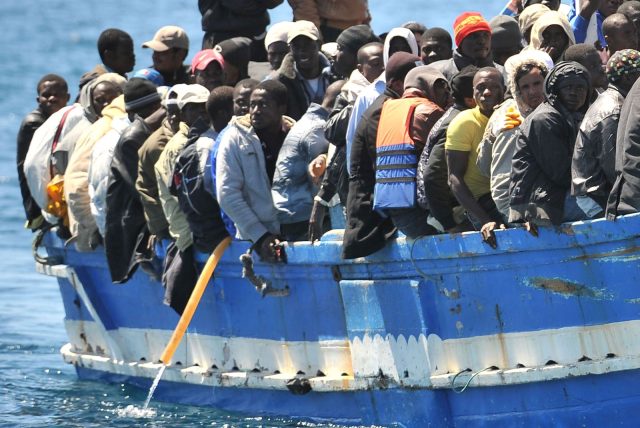
In Italy the conservative right has ruled for a year now. Since that September 25, 2022, the Italian left has done nothing but say “no” to whatever proposal was made. Most of the time for the simple fact of being in opposition. Nothing new. Of course, no one expects proposals from a right-wing government to be voted in favour by a left-wing opposition. At the same time, however, if you do not reflect and analyze the proposals before attacking your political opponents you risk making bad figures not only at national level but also internationally.
This is exactly what has happened in recent days to the Italian left parties on the issue of immigration. Giorgia Meloni, in fact, met with the Albanian Premier Edi Rama to conclude a historic agreement on immigration. In summary, this agreement provides for the possibility for Italy to bring to Albania, in some structures of Italian jurisdiction, migrants rescued in the Mediterranean by Italian ships. In return, Italy is committed to Albania becoming a member of the European Union. Within a few hours of the signing of the agreement, the opposition parties in Italy immediately sharply criticised the text.
There are those who, like Nicola Fratoianni, national secretary of the Italian Left, Fratoianni, spoke of “relocation” of immmigration, adding, moreover, concerns about possible “megacenters” in Albania, calling them of “dubious juridical nature”.
Secretary Elly Schlein and Italian Democratic Party Migration Policy Manager Pierfrancesco Majorino called the agreement a “dangerous mess, very unclear”. It is good to remember that the party of which Rama is the leader and the Italian PD are part of the same parliamentary group. Finally, there are those even more out of the world like Riccardo Magi, secretary of More Europe, compared the situation to an “Italian Guantanamo”. The latter said that there would be no possibility of verifying the conditions of people restricted in the centres.
Really out of this world statements that demonstrate the lack of vision on important issues make them look bad. This is evident from the fact that even Olaf Scholf, the German Chancellor and Social Democrat leader, has repeatedly stated that the Italy-Albania model must be carefully observed because it can be a virtuous example for combating illegal immigration. Mr Scholz also stressed the need for targeted and clear measures against uncontrolled immigration. Finding partners outside the EU to carry out asylum procedures is an effective way to solve the challenges and problems of the “European family”. German Interior Minister Nancy Faeser, also a Social Democrat, also reiterated the need to conclude agreements with the countries of origin of migrants in order to repatriate illegal immigrants and facilitate the immigration of skilled workers. This is where the “Albanian Italian model” fits in.
Carlo Fidanza, head of the delegation of Fratelli d’Italia-ECR in the European Parliament, immediately commented: “The Scholz government, in fact, seems intent on proceeding along the path of agreements with third countries to reduce migratory pressure. Poor Schlein, politically slapped on immigration by her own political family, she has only the usual painful refrain of bizarre accusations against Giorgia Meloni and the Italian right”.



 Subscribe
Subscribe